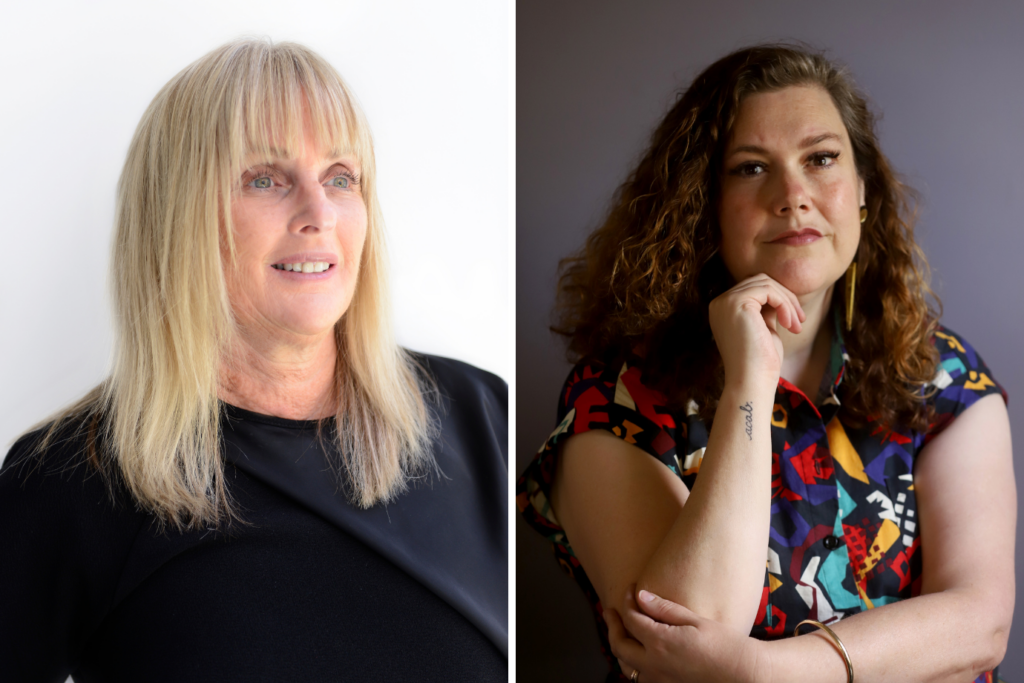Australia loves to pretend prisons are about safety. Politicians tell us they are necessary, that they protect the community, that those inside deserve to be there. What never makes it into their speeches are the voices of the women who have survived these cages, the ones who know firsthand that prisons do not keep us safe, they disappear us.
That’s why Sisters Inside has launched #FreeHer, a new podcast that is raw, unfiltered, and unapologetic. Over six episodes, you’ll hear from members of the National Network of Incarcerated and Formerly Incarcerated Women and Girls, who are Aboriginal and racialised women, mothers, grandmothers, and community leaders who have lived through incarceration and come out fighting for freedom on their own terms. These stories aren’t tidy redemption arcs designed to make the system feel good about itself. They’re about truth. About rage. About survival. About resistance.

As Debbie Kilroy, one of the podcast co-hosts, says: “These aren’t easy stories, but they’re necessary ones. You’ll hear survival. Grief. Laughter. Rage. Joy. Sisterhood. This isn’t a road to redemption project, it’s about truth-telling, on our terms.”
Why these stories matter
The truth is, stories like these aren’t being told – at least not by the women who’ve lived them. And that silence isn’t accidental. From the very beginning of the colony, police and prisons were designed to protect power and property, not people. They were built to control Aboriginal and Torres Strait Islander peoples, to crush resistance, and to violently enforce land theft.
That legacy continues. Today, prisons still function to punish the poor, to criminalise survival, to warehouse people who have been failed or actively harmed by every other institution. Homelessness, mental health, poverty, domestic violence, sex work, drug use: none of these are crimes. And yet, in this system, they are treated as criminal offences.
Prisons don’t solve problems. They hide them.
And the price of that hiding is daily violence: strip searches, medical neglect, solitary confinement, family separation, punishment for grieving, for loving, for being poor. These systems are violent by design. They depend on dehumanisation. Because to keep building cages, society must believe the people inside are less than human, less deserving of dignity or care.
That’s why these conversations matter. Every time a woman speaks her truth about incarceration, it chips away at the lie that people in prison are disposable. It reminds us that they are sisters, mothers, carers, thinkers, artists, fighters: and they deserve to be heard.
The voices inside #FreeHer
The first season of #FreeHer lifts up those voices. Episode one kicks off with a panel from the People Against Poverty Summit in Magan-djin, where three formerly incarcerated women draw the deep links between poverty, race, gender and imprisonment, and why we can’t end poverty without closing prisons.
Later episodes feature legendary truth-tellers like Aunty Vickie Roach, who once helped form an “escape committee” inside, reminding us that the spirit cannot be caged. You’ll hear from Aboriginal women like Jacqui Katona, who led the fight against the Jabiluka uranium mine; from Lorraine Pryor, who built Voice of Hope so no other woman would have to walk out of prison alone; from Filipino woman, MJ Whalen who speaks of mothering across prison walls; and from Tia Richards, Sisters Inside’s first formerly incarcerated Aboriginal President, who went from being criminalised at 17 to leading an abolitionist organisation today.
This is not charity work. It is not performance. It is resistance.
As co-host Tabitha Lean puts it: “Through the chronicling of these stories, #FreeHer creates space for women to speak up, to speak out, and to speak back to the system that tried to silence us. This is their space. Our space. And we’re inviting you to be a part of it. To listen. To witness the power, the pain, the brilliance, and the fire in criminalised women’s voices.”
Listening as solidarity
Listening to #FreeHer is not a passive act. It is an act of solidarity. It is a refusal to look away. It is a reminder that abolition isn’t an abstract slogan, it is grounded in the everyday lives, struggles, and survival strategies of women who have already been written off by the state.
At times, these are not easy stories to listen to, neither are they meant to be. But they are necessary. If we are serious about dismantling carceral systems, then we need to start by listening, really listening, to the people who have survived them.
The first episode of #FreeHer drops Monday 1 September. Listen on your favourite podcast streaming service, including Spotify, Apple Podcasts, or Podbean. But more than that – hear these incredible women. Carry their stories. And remember that no one is free until we all are.


